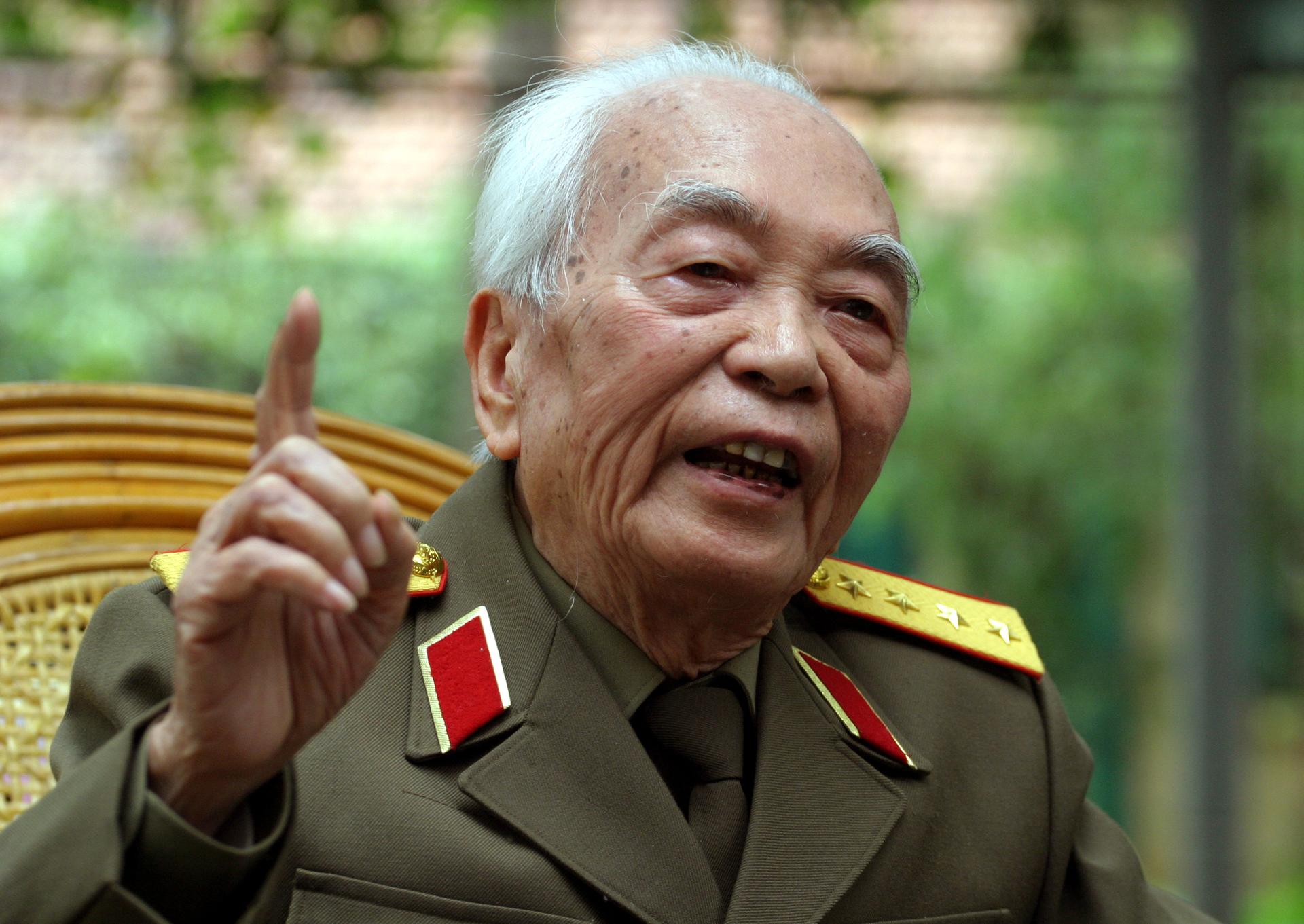Vo Nguyen Giap, America’s nemesis in Vietnam, dies at 102
General Vo Nguyen Giap speaking during an interview in Hanoi, in 2004, on the 50th anniversary of his stunning and decisive defeat of the French at Dien Bien Phu.
He was arguably one of the greatest generals of the 20th century, even if he was America's enemy.
Vo Nguyen Giap defeated the French, and liberated his country – Vietnam – from colonial rule. Then he fought against the United States – and succeeded in that, too.
Critics, though, remember Giap for his ruthlessness, and his willingness to send large numbers of troops to the slaughter.
Giap died Friday, October 4th, at the age of 102.
"He's not really known as a great traditional strategist – I mean in the western sense of the word," says Jamie Warren. Warren has just published a biography of General Giap.
"I think Giap's greatness lay in his ability to see war in a very broad perspective. Much broader, and much more astutely than his American and French counterparts. He understood that the battles didn't mean much in the Vietnamese context. And really what was essential was the political aspect of the fighting, which meant mobilizing and organizing people."
Warren disagrees with the image of Giap as a butcher. "He had no other option." Warren says Giap was very aware of the weaknesses of his own side, with its inferiority in firepower, logistics and technology. "People were his weapon."
Giap came from a relatively comfortable background and was well educated, becoming a history teacher and journalist. But he was radicalized by French colonial oppression and became an ardent communist revolutionary.
Many members of Giap's family were arrested, tortured and executed by the French in the 1940s. Warren says many people who knew Giap, including his daughter, say that he never got over the loss of his beloved first wife, who died in a French prison. This hardened him, but Warren says he was also motivated by an incredible patriotism and devotion to Ho Chi Minh.
"Giap has an extraordinary confidence… He just wouldn't truck with anyone who said this couldn't be done."
He never received any formal military training and, as he himself put it, "learned his trade in the bush."
He formed the Vietnamese People's Army with 31 men and women in 1944, and fought against the Japanese who had occupied Vietnam at the beginning of World War II. He led the resistance to the French when they tried to restore their colonial authority after Japan surrendered in 1945. A protracted war ensued, with Giap's characteristic blend of conventional and guerrilla warfare, and political mobilization. He managed to make the French over-extend themselves, and then he trapped and captured an entire army at Dien Bien Phu in 1954.
Vietnam was partitioned and communist North Vietnam's attempts to take over the South led to increasing US intervention. Giap organized and led another protracted war against the US; his goal was just to out-last his enemy. He succeeded.
